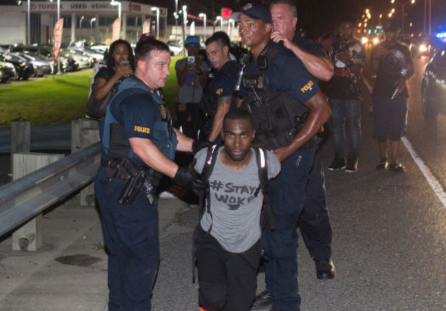SCOTUS Deals Major Blow to Prominent Black Lives Activist

The American Civil Liberties Union appears to disagree, but a leader of a protest during an election year can indeed be sued and possibly held responsible for the unlawful actions of his supporters. And no, this isn't referring to former President Donald Trump; it's unlikely the ACLU would defend him.
In a recent case, the Supreme Court rejected an appeal from Black Lives Matter activist DeRay Mckesson's legal team, which included ACLU lawyers, to avoid being sued by Baton Rouge Police Officer John Ford. Ford filed a negligence suit against Mckesson after being hit in the face by a thrown rock or concrete during a protest near police headquarters on July 9, 2016.
Although Mckesson was arrested that day, the charges were later dropped. He argued that his First Amendment rights to free speech and assembly shielded him from accountability for Ford's injuries, overriding Ford's right to safety from projectiles.
Initially, U.S. District Judge Brian Jackson dismissed the suit in 2017, but the 5th U.S. Circuit Court of Appeals reinstated it in 2023. Mckesson appealed to the Supreme Court, which sent the case back to the lower court for trial.
The protest in Baton Rouge was one of many across the U.S. in 2015 and 2016 related to police incidents and Black individuals, preceding the larger racial justice protests after George Floyd's 2020 murder. A ruling against Mckesson could impact public demonstrations, a fundamental aspect of American democracy.
On the flip side, stricter consequences for protests resulting in severe injuries like Ford's could be seen as beneficial to public safety. Some legal scholars argue that the appeals court's decision might hinder activism for societal change.
5th Circuit Judge Don Willett, in his dissent, suggested that such a ruling could have hindered the civil rights movement decades ago. Ford asserts that Mckesson, as a protest leader, should have foreseen the potential for violence.